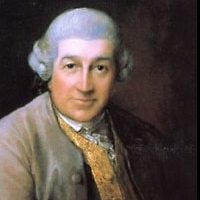Understanding and Sense
A great speech is easy to learn by heart and a great poem even easier. How hard it would be to memorize as many words linked together senselessly, or a speech in a foreign tongue! Sense and understanding thus come to the aid of memory. Sense is order and order is in the last resort conformity with our nature. When we speak rationally we are only speaking in accordance with the nature of our being. That is why we devise genera and species in the case of plants and animals. The hypotheses we make belong here too: we are obliged to have them because otherwise we would unable to retain things... The question is, however, whether everything is legible to us. Certainly experiment and reflection enable us to introduce a significance into what is not legible, either to us or at all: thus we see faces or landscapes in the sand, though they are certainly not there. The introducion of symmetries belongs here too, silhouettes in inkblots, etc. Likewise the gradation we establish in the order of creatures: all this is not in the things but in us. In general we cannot remember too often that when we observe nature, and especially the ordering of nature, it is always ourselves alone we are observing.
Georg Lichtenberg, in 'Notebook J'
Georg Lichtenberg, in 'Notebook J'
Search
On Anger: "For every minute you remain angry, you give up sixty seconds of peace of mind."
Essays
Essays
On Destiny: "Our destiny exercises its influence over us even when, as yet, we have not learned its nature: it is our future that lays down the law of our today."
Human, All Too Human
Human, All Too Human
On Friendship: "A crowd is not company; and faces are but a gallery of pictures; and talk but a tinkling cymbal, where there is no love."
Essays
Essays














